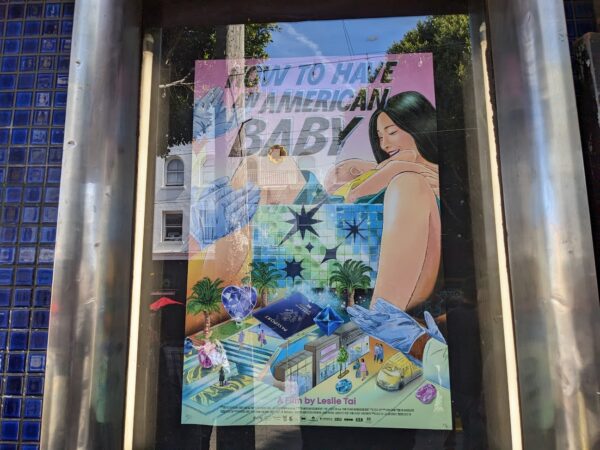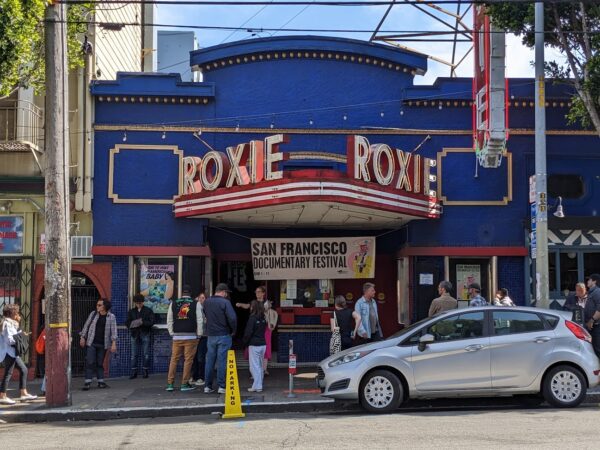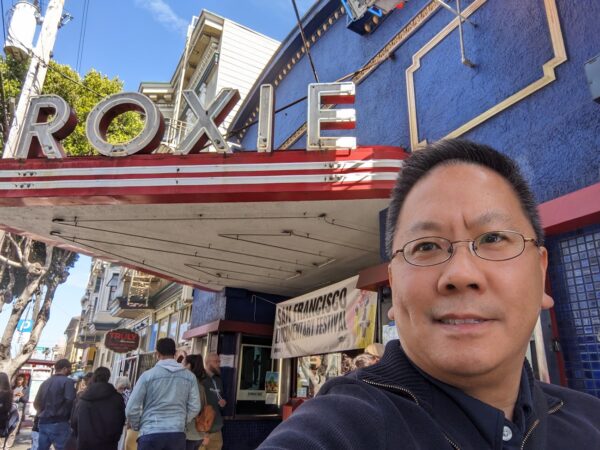I had first heard of ‘birth tourism’ from a former co-worker/friend of mine more than a decade ago. When I heard that Chinese women were coming Southern California to give birth so that their kids could get U.S. citizenship, I was incredulous. A few months after that, I had read this in January 2013 LA Times article:
“USA Baby Care’s website makes no attempt to hide why the company’s clients travel to Southern California from China and Taiwan. It’s to give birth to an American baby.
“Congratulations! Arriving in the U.S. means you’ve already given your child a surefire ticket for winning the race,” the site says in Chinese. “We guarantee that each baby can obtain a U.S. passport and related documents.”
That passport is just the beginning of a journey that will lead some of the children back to the United States to take advantage of free public schools and low-interest student loans, as the website notes. The whole family may eventually get in on the act, since parents may be able to piggyback on the child’s citizenship and apply for a green card when the child turns 21.
USA Baby Care is one of scores, possibly hundreds, of companies operating so-called maternity hotels tucked away in residential neighborhoods in the San Gabriel Valley, Orange County and other Southern California suburbs. Pregnant women from Chinese-speaking countries pay as much as $20,000 to stay in the facilities during the final months of pregnancy, then spend an additional month recuperating and awaiting the new baby’s U.S. passport.”
When I saw that “How to Have an American Baby” documentary was coming to the 2023 San Francisco Documentary Festival (“DocFest”), I definitely wanted to see it.
The documentary is about two hours long and has un-narrated video segments of the mothers, their husbands or boyfriends, and the people who run and work at these “birth hotels,” which are really just apartments or homes in Southern California. It provides a very intimate exposure as to the details of how these companies promote their services in China and to what life is like living in one of the places. It shows the details of providing for these pregnant women as well as the actual birth of a baby (though part of that is blurred for privacy’s sake). Births occur at the hospital and medical appointments at the doctors’ office, not at these hotels. Overall, it was quite enlightening to see such an intimate portrayal of the whole industry and put real people to this former phenomenon (more on that later). As this review stated:
“Tai shot and interviewed all of the subjects over the course of a few years, which creates a palpably deep intimacy. The documentary is entirely in Chinese with English subtitles, which furthers the closeness between the director and her subjects. Things aren’t explicitly stated for the viewer but revealed in confessionals or natural dialogue between characters. This further creates an immersive experience for the viewer and heightens the emotional experience of watching the film.”
My only complaint would be it would have been nice to maybe start off with a little context explaining to the laymen what birth tourism is and how large it became before the COVID pandemic essentially shutdown the industry.
Birth tourism is technically not illegal. There may be some cases of visa fraud, zoning violatoins, or tax evasion, and there have been raids in the past (Jan 29, 2013) in such instances:
“It’s a growing trend: Asian mothers coming to Los Angeles County to have their babies in so-called “birthing hotels.” They’re spending up to $20,000 to have their babies in the United States, ensuring that the children are U.S. citizens. But now, authorities are cracking down on these makeshift maternity hotels. …
The practice does not violate federal immigration laws, but local governments can crack down on the hotels for zoning or building code violations. … That’s when authorities found that the single family home had been divided into 17 bedrooms and 17 bathrooms and used as a makeshift maternity ward. The illegal operation was shut down, and Knabe is now developing a law to outlaw any other unlicensed birthing centers.”
Visiting the U.S. to have a baby for birthright citizenship is not illegal. But personally, I don’t think the founders of the United States, the authors of the 14th amendment or defenders of Wong Kim Ark, which re-affirmed birthright citizenship, would say that birth tourism expresses the intent of the right.
In any case, the Q&A with the filmmakers Leslie Tai and Jillian Schultz helped provide a lot of context. They also said that because COVID-19, there weren’t a lot of Chinese able to leave China to visit the U.S. and that due to rising Xi nationalism and tensions between the U.S. and China, the popularity of having an “American baby” has long lost its luster. In fact, Chinese parents are hiding that fact now that their kids might have been born in the U.S. and have citizenship.
The biggest and interesting revelation was the motivation for both the mothers and the birth tourist companies that got involved in the film. The pregnant women would often come to the U.S. alone and not know a lot of people and basically be bored, so having someone around to talk to and express what they were going through was comforting. For the birth tourism businesses, since most of the folks running these businesses were not very fluent in English, they saw the filmmakers as essentially free labor to help out with a wide variety of translation issues and activities.
If you’re looking to catch the documentary, the film will be broadcasted on PBS on Point Of View (POV) on December 11, 2023.











